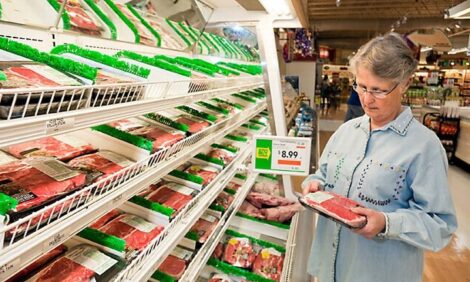



Member Countries Unrest Over Canada's Inclusion in TPP
GLOBAL - The recent announcement at the G20 summit, of Canada’s inclusion into the Trans-Pacific Partnership (TPP), has got member countries the United States of America (US), New Zealand (NZ) and Australia up in arms over Canada’s open agricultural subsidisation schemes, in particular their subsidisation schemes surrounding Canadian pork production.
The nine strong partnership of the USA, Australia, NZ, Brunei Darussalam, Chile, Malaysia, Peru, Singapore
and Vietnam, also voted to include Mexico into the TPP. These nine economies have a combined gross
domestic product (GDP) of US$16,968 trillion, a GDP per capita of US$33,546 and represent a population
of 505.8 million people.
The inclusion of Canada and Mexico now takes the 11 member TPP group to nearly 30 per cent of global
GDP. This is a substantially larger trading power than the 27-nation European Union (EU) bloc.
Whilst trading power is one element, the TPP goes beyond a traditional trade agreement and deals with
behind-the-border impediments to trade and investment. The group serves as a pathfinder to broader
regional economic integration, similar to the EU. This ultimately gives it potential to form the basis for
free trade across the Asia – Pacific region. The main aim of the TPP negotiations is to eventually include all
21-member economies of Asia –Pacific Economic Co-operation (APEC) forum.
Australian Pork Limited CEO, Andrew Spencer, said: “Australian pork producers are aware that Canada’s
federal and provincial governments bestow countervailable subsidies on the Canadian pig industry. These
subsidies cause significant distortions to overseas markets such as Australia, the US and NZ. Domestic
subsidy programmes are generally not within the scope of free trade agreements. However, in this case
Canadian agricultural subsidies are so wide ranging and have such a broad and far reaching impact on
overseas markets it is on these grounds we, along with the US, and NZ, urge the TPP negotiators and
governments to deal with these issues fairly as part of the process“.
“Canada needs to end its federal and provincial hog subsidy programs, which are distorting the North
American and world pork markets,“ said R.C. Hunt, president of the United States’ National Pork
Producers Council and a hog farmer from Wilson, N.C.
“If the US had a subsidy program similar to
Quebec’s, for example, we would double pork production in 10 years to the severe detriment of our
Canadian counterparts. Subsidy programs are antithetical to free trade and to the spirit of the TransPacific Partnership negotiations that Canada is entering.“
New Zealand Pork CEO, Owen Symmans, said “We support safe free trade with appropriate management
of biosecurity and food safety risks. However, we are concerned that Canada enters the TPP with federal
and provincial government subsidies for the Canadian pig industry in place. The Province of Ontario
recently enacted a new countervailable subsidy program called the Risk Management Program that sees
Canadian farmers receive a guaranteed return for their pork production. This sort of blatant subsidisation
places competing pork producers, who do not subsidise their production, at a distinctive disadvantage“.
Australian, NZ and US pork producers have pointed out that the Canadian government’s actions are
counterproductive to the overarching philosophy of the TPP’s goals and ambitions and are forming a united
voice to strongly request national trade representatives involved in the TPP negotiations to address this
serious and damaging action by the Canadian government.








